Hot Take Just Got a Lot Cooler
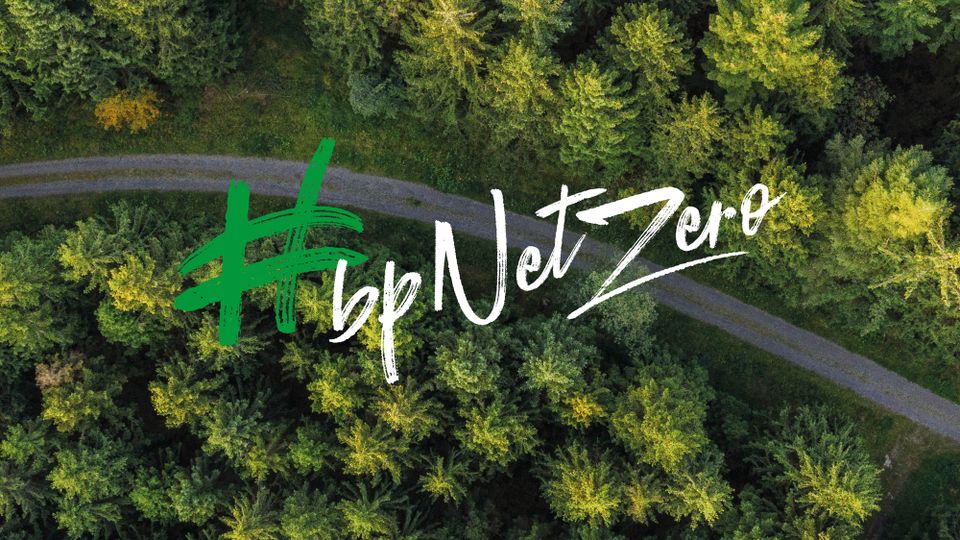
Hey Hot Cakes!
Welcome to Hot Take! Your weekly (at least) newsletter surveying the state of the climate crisis and all the ways we’re talking—and not talking about it! We give you a round up of the latest climate stories and articles of the week, plus exclusive original reporting and commentary from us. Oh, and who are we? Amy Westervelt, long-time climate journalist with more seasoning than an everything bagel, and Mary Annaïse Heglar, a literary writer known for her essays on climate, race, and emotion—and her enthusiasm for dad jokes!
In addition to this newsletter, we have a podcast and a store!
To kick off Earth Month, we're sending the full edition of the newsletter out to both free and paid subscribers. If you like what you see and you'd like to support our work, you can upgrade here.
It’s time to talk about climate!


Hot Take Just Got a Lot Cooler
By Mary Annaïse Heglar and Amy Westervelt
And it’s not just because we ditched Substack for our fancy new digs at Ghost! Today’s episode is a collaboration with The Coolest Show, which is hosted by Reverend Lennox Yearwood, a long-time climate and environmental activist! We started this conversation with an outline, but threw it out the window almost immediately, lol.
We talked about the power of trolling and how it’s really just speaking truth to power at a critical moment. We talked about how the road to the present day climate movement is paved with missed opportunities stemming from the utter failure to connect the dots between climate change and other human rights issues like war and racism and immigration. We even talked about the ridiculous notion that Christianity is inherently anti-environment, when that couldn’t be further from the truth. The fact that that assumption exists at all says a lot about who America thinks “real Christians” are, and it’s not governed by faith. It’s governed by demographics.
At the end of the episode, we added a little sidebar conversation about the American Petroleum Institute’s brand new climate plan. Spoiler alert: it’s trash, and they deserve to be dragged.
How We’re Celebrating Earth Month
By Mary Annaïse Heglar
April is Earth Month, and last year it pretty much got wiped off the map due to all the focus on the pandemic and the media’s utter inability to talk about more than one thing at a time. This year, though, it’s back. And we’re celebrating it in the pettiest, most gleeful, most beautiful way we can think of: relentless trolling of fossil fuel companies and their lobbying groups. We’ve got a lot of climate rage to get out, and if you do too, we invite you to join us in this petty pursuit. Trust us, there’s more than enough room for you on the Greentroll Express.
That’s why we’re kicking off the month and our first newsletter on our new platform by republishing our best greentrolling stories. There are resources here for everyone, the newcomers and the OG’s. If you’re more of a visual troller, here’s a whole Twitter thread full of memes that you can take from and add to. And we’ll have more content coming over the course of the month.
P.S. Mark your calendar for April 20. It’s the 11th anniversary of the Deepwater Horizon oil spill, just two days before Earth Day, and we need to wish BP a very, very unhappy anniversary. Meme-makers, you have your orders.
Get in Losers, We’re Going GreenTrolling
By Mary Annaïse Heglar, from November 2020
The day before the election, something glorious happened: Shell Oil became the “main character” on Twitter. The company’s original tweet got “ratioed” (meaning it generated more comments and retweets than likes, most of which were mockeries and outrage). It was a good moment and frankly long overdue. It was also very, very important.
If you’re not a big social media person, that might sound frivolous, but I promise you it’s not. Social media, especially Twitter, is where our discourse is shaped. It’s where news is made. And, for better and worse, as we’re all isolated, it’s our almost literal town square.
The sole purpose of oil companies' presence on social media is to further the narrative that they are part of the solution and obscure the fact that they literally are the problem. They are using the biggest arenas ever created to convince the world that they’re something that they’re not. And they’re good at it for exactly two reasons: (1) they’ve been honing their propaganda machine for legit decades and (2) no one ever challenges them.
Seriously, #ClimateTwitter has more smoke for those of us who take flights or think nuclear is a good idea than we do for Shell or BP or Exxon. Maybe it’s because we think arguing with oil companies on Twitter isn’t productive. So, don’t argue with them: shame them, expose them. Make it clear that they can’t show their faces in polite society without being ruthlessly harassed. They are not welcome here.
Let’s meet their greenwashing with a little something I’ve come to call greentrolling. It’s fun. Here are a few ways to do it:
- [Wait for oil company to tweet.] Do a quick google search to find them doing the exact opposite of what they say they’re doing. So, Shell tweets about a hydro farm in China? Remind them of their risky drilling in Alaska. Copy and paste the article with the caption “this you?” And you’re done.
- [Wait for oil company to tweet.] Remind them of their human rights abuses. It doesn’t have to have anything to do with what they actually posted, because it has everything to do with who they are. You can google an article for any of them very quickly because they are the literal worst.
- [Wait for oil company to tweet.] Respond with #Abolish[oilcompany].
- [Wait for oil company to tweet.] Respond with emojis, gifs, a quick “fuck you.”
Please tweet your trolls at us!
Hey Big Oil: Delete Your Accounts
By Amy Westervelt, from November 2020
In further defense of Mary’s greentrolling, it’s worth noting that social media has become really key to oil companies’ attempts to secure what’s called a “social license to operate.” We’ve talked about this before, but energy expert Jigar Shah shared a great explanation recently in Climate Nexus:
“Every once in a while they’re like, ‘You know what? We need to look more green here so we can get more oil contracts in these other markets,’” he said. “They want a license to operate, right? What they say to shareholders is, ‘Look, we have to divert 10 percent of our capital to this other stuff so we actually have a license to operate.’”
First comes the (small) investment in “green” endeavors and then comes the massive social media campaign that makes it seem like they’re not even in the oil business anymore at all. But don’t believe the hype, here’s how their claims stack up against their actions:
The reason they’re so focused on social media is because they’re really freaking out about how absolutely they’ve lost the confidence of young people. It’s showing up in polls, in employment numbers, everywhere. Two in three teenagers say the oil industry creates problems rather than solves them; only one in four teenagers say they find working for an oil company even somewhat appealing; the number of college students going into petroleum engineering has been dropping steadily the past few years. In internal marketing materials leaked to me earlier this year, BP seemed simultaneously in awe and terrified of Greta Thunberg. “What is meaningful empathy in a world where we’re seen as one of the bad guys?” one slide reads. Remember that every time you see any of these fools attempting authenticity online, and know that every troll is another blow to their social license.
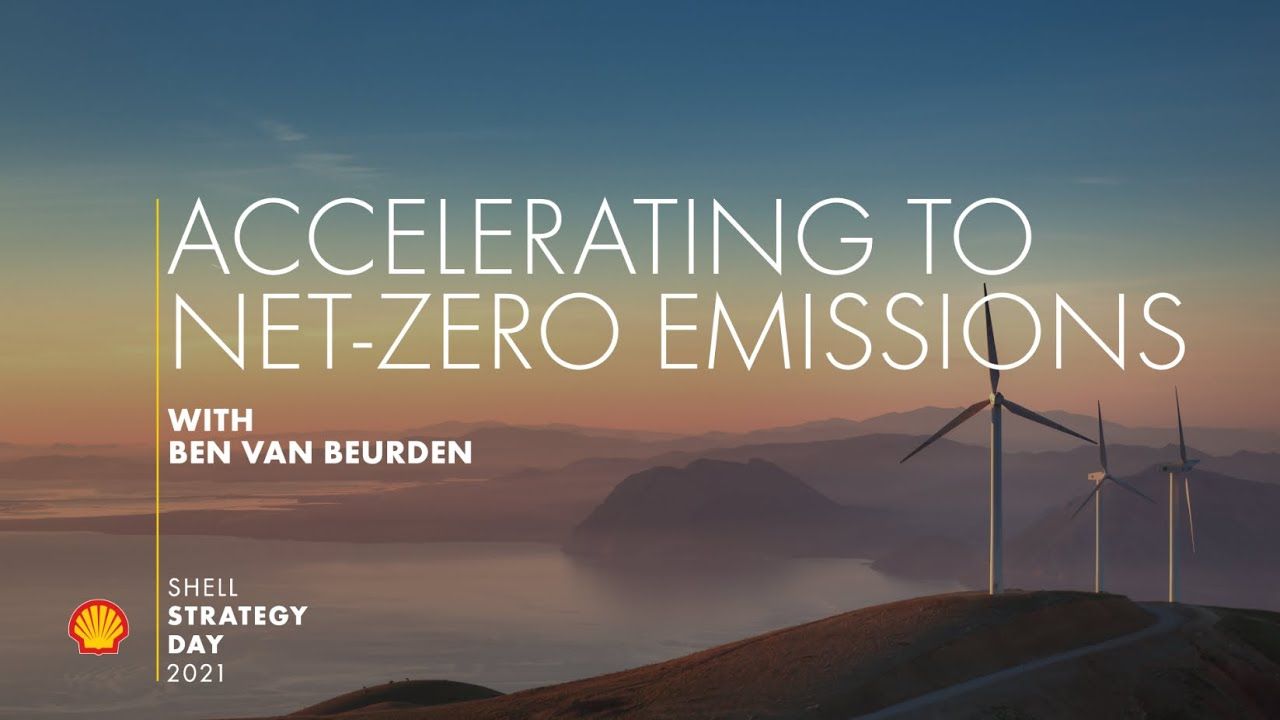
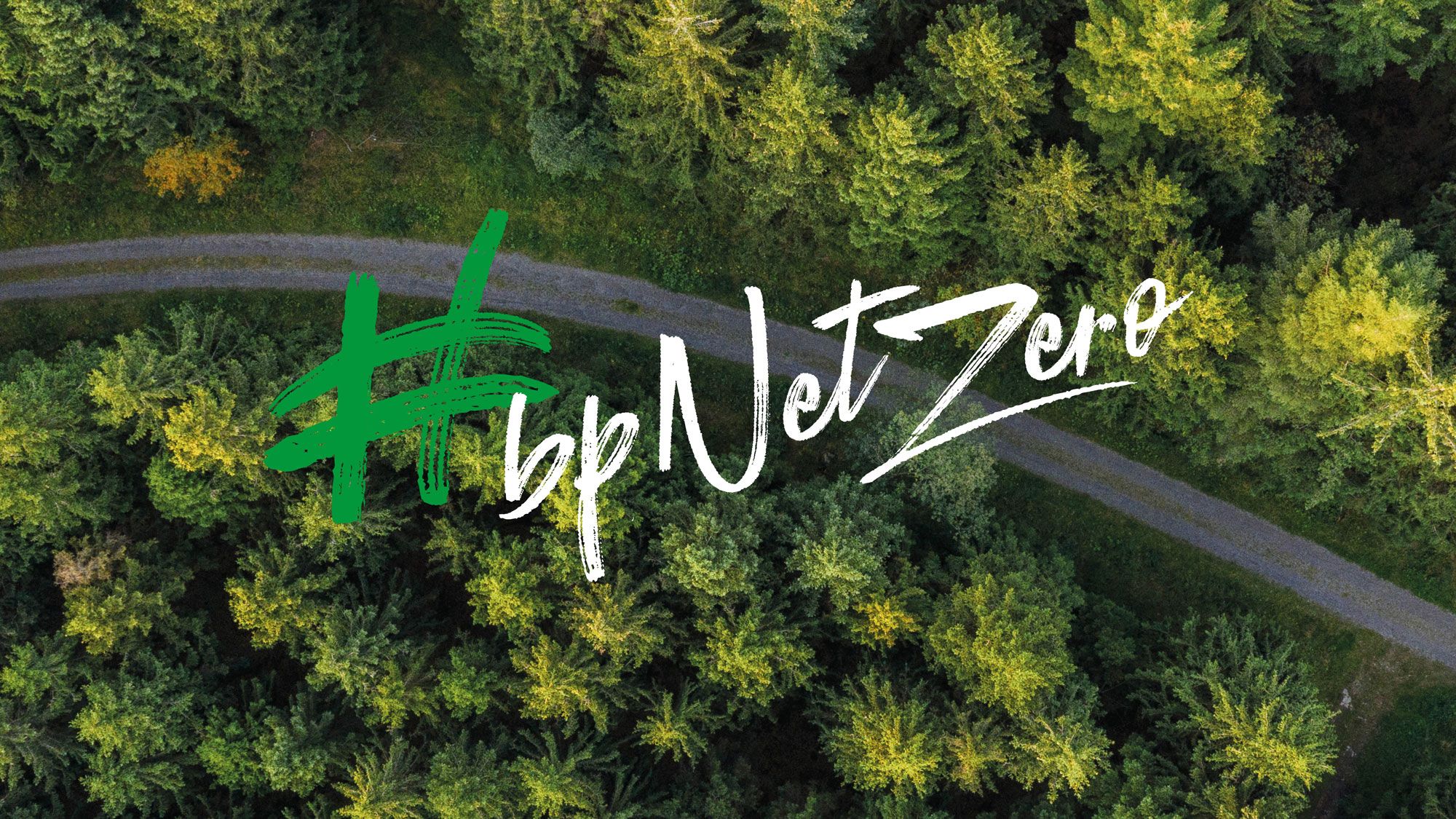
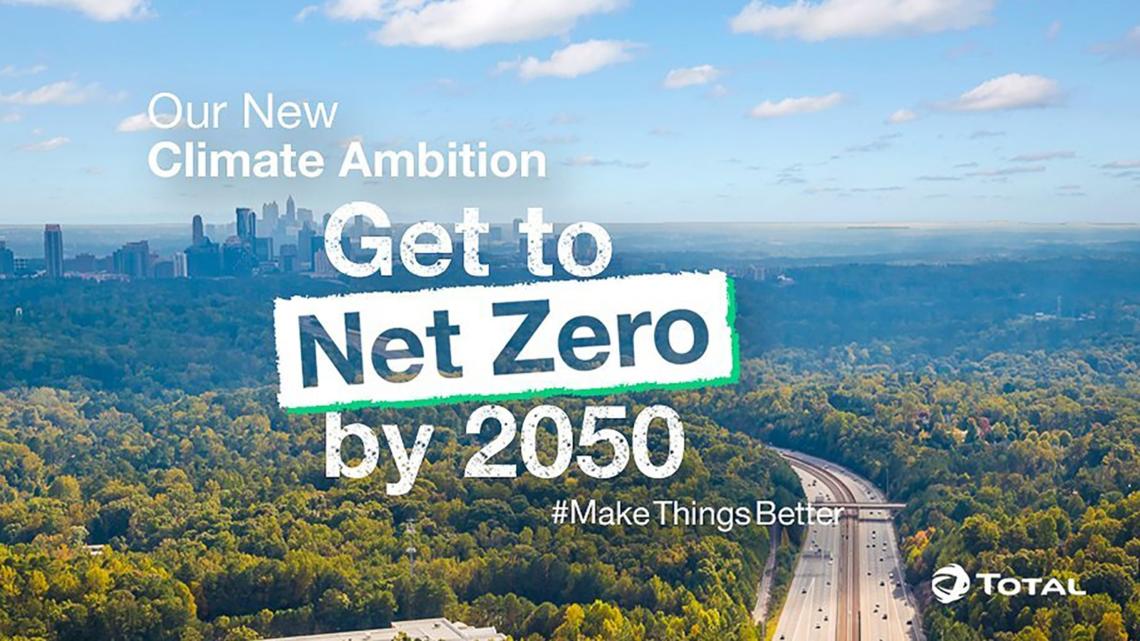
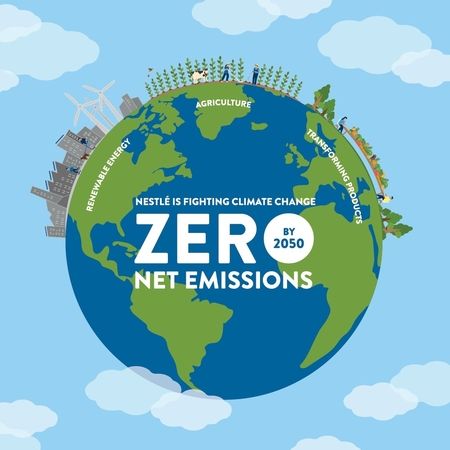
Net Zero Is Not Zero
By Amy Westervelt, from December 2020
It’s not just one of our favorite greentrolls, it’s also an important thing to remember: net zero doesn’t mean zero emissions, or even necessarily a reduction in emissions. When companies—particularly oil companies—make claims of being on a path to net zero, as Shell and BP have done, it’s often built on a shaky foundation of carbon offsets and carbon capture technology. You might recall that BP announced its “ambitious” net zero goals in January and, when pressed on how, exactly, they would do it, muttered “we’ll explain more in September.” Well September came and went and the answer is still something vague about carbon offsets, carbon capture, and more “low-carbon gas”—a cute new euphemism for natural gas … itself a euphemism for yet another fossil fuel.
Last week, 41 scientists and economists signed on to a warning about net zero targets and how problematic they are. In most cases, carbon offsets rely on forests or soil capturing CO2… but nature's carbon capture system is already filled up with the CO2 we've emitted over the past century. And dreams of future technologies that could effectively vacuum CO2 out of the air tend to trick people out of immediate action.
If you think they’re being too negative, consider this: The Paris Agreement required countries to commit to reducing emissions. It’s the oil companies in countries that have signed on to that agreement that you’ve seen making net-zero claims, right? And though their targets may be ambitious, their plans to get there are blurry as fuck and actually rely largely on a combo of offsets and technologies that don’t exist yet. And despite all those net zero announcements, what’s actually happened since the Paris Agreement was signed five years ago? Emissions have increased by 7 percent when they should have decreased by 5 to 7 percent if anyone was actually sticking to their commitments.
The scientists referenced above list 10 key myths about net-zero targets. You should read through them all, but the one that really jumped out at me was this: Each ton of carbon dioxide is the same and can be treated interchangeably. False. That’s right, folks, not all carbon is created equally. The theoretical removal of CO2 tomorrow does not compensate for emissions today. And, as these experts write, “Emissions from luxury consumption should not be considered equal to emissions from essential food production.”
So next time you see a net-zero promise, ask them what their plan is to reduce—or, better, eliminate—emissions TODAY.
DIGEST
Rising Temperatures, Rising Tides
Global forest losses accelerated despite the pandemic, threatening world’s climate goals, by Chris Mooney, Brady Dennis and John Muyskens for the Washington Post
How much forest did we lose in 2020? Like, a Netherlands’ worth, by Nathanael Johnson for Grist
New Research Exposes Weird Tsunamis Caused by Gravity Waves, by Isaac Schultz for Earther
Scientists Have Observed Ominous Winter Leaks in Greenland Ice Sheet Lakes, by George Dvorsky for Earther
Japan Hasn’t Seen Cherry Blossoms This Early in 1,200 Years, by Molly Taft for Earther
Narwhal Tusks Show How Climate Change and Pollution Are Reshaping the Arctic, by Molly Taft for Earther
Early bloom of cherry blossoms in Washington DC point to climate crisis By Lauren Gambino for The Guardian
Rapid global heating is hurting farm productivity, study finds By Oliver Milman for The Guardian
China sandstorms highlight threat of climate crisis | Environment By Michael Standaert for The Guardian
Purple Urchins Devour Kelp Forests, So Divers Fight Back By Lauren Sommer for NPR
NOAA Upgrades Weather Forecast Model By Rebecca Hersher for NPR
Russia is Turning Ever Given's Plight into a Marketing Tool for Arctic Shipping. But It May Be a Hard Sell By Sabrina Shankman for Inside Climate News
The Climate Presidency
Biden unveils a ‘once-in-a-generation’ infrastructure plan in Pittsburgh, by Zoya Teirstein for Grist
Why Biden’s Infrastructure Plan Needs to Go Way Bigger, by Dharna Noor for Earther
Biden Is Too Worried About the Deficit, Not Worried Enough About Climate Change, by Kate Aronoff for the New Republic
Don’t Fall for the Carbon Tax Trap, by Kate Aronoff for the New Republic
Are Climate Progressives Organized Enough to Force Biden’s Hand? By Kate Aronoff for The New Republic
Biden’s About to Unveil the Biggest Climate Spending Plan in US HIstory, by Greg Walters for Vice
EPA dismisses dozens of key science advisers picked under Trump, by Dino Grandoni for the Washington Post
Auto negotiations test Biden’s vow to create a climate-friendly future, by Juliet Eilperin and Steven Mufson for The Washington Post
Biden administration launches major push to expand offshore wind power, by Juliet Eilperin and Brady Dennis for The Washington Post
Biden’s infrastructure plan aims to turbocharge U.S. shift from fossil fuels, by Steven Mufson and Juliet Eilperin for The Washington Post
America Has Long Favored Cars Over Trains and Buses. Can Biden Change That? By Brad Plumer and Nadja Popovich for The New York times
Biden’s Big Bet: Tackling Climate Change Will Create Job, Not Kill Them, by Coral Davenport, Noam Scheiber and Lisa Friedman for The New York Times
Joe Manchin and the filibuster will decide if Biden succeeds on climate change By David Roberts for Vox
How Biden plans to tackle the climate crisis in his $2 trillion infrastructure plan By Lili Pike for Vix
Biden Doesn't Need to Be FDR or LBJ to Change America By Eric Levitz for New York Magazine
Dismissing Trump's EPA Science Advisors, Regan Says the Agency Will Return to a 'Fair and Transparent Process' By Marianne Lavelle for Inside Climate News
Nine Ways Biden's $2 Trillion Plan Will Tackle Climate Change By Marianne Lavelle for Inside Climate News
Biden Takes Aim at Reducing Emissions of Super-Polluting Methane Gas, With or Without the Republicans By Marianne Lavelle for Inside Climate News
Climate Accountability
Utility That Funded a Racist Ad Campaign Tweets How It Remains ‘Committed’ to Antiracism, by Molly Taft for Earther
Fossil Fuel Companies Got Billions In Bailouts, Fired Thousands of Workers Anyway, by Molly Taft for Earther
Emails Show Texas Officials Shared Climate Denier’s Talking Points During Blackouts, by Molly Taft for Earther
Big Oil is a Big Loser (of Money, But Also Life) by Molly Taft for Earther
US fossil-fuel companies took billions in tax breaks – and then laid off thousands By Oliver Millman for The Guardian
Big Meat and Dairy Companies Have Spent Millions Lobbying Against Climate Action, a New Study Finds By Georgina Gustin for Inside Climate News
Mike Rowe's New Discovery+ Show Is Big Oil-Funded Propaganda by Dharna Noor for Earther
Justice Is Justice Is Justice
Fighting pipelines to the last mile, by Braela Kwan for Grist
Why activists distrust this plan to cut emission from cars and trucks, by Ysabelle Kempe for Grist
The Indigenous-led fight to stop the Line 3 oil pipeline expansion in Minnesota, explained by By Jariel Arvin for Vox
Migrants are heading north to the US because Guatemala and Honduras haven't recovered from storm damage By Nicole Narea for Inside Climate News
The “Root Cause” of Central American Migration Is Broken U.S. Policies, by Felipe De La Hoz for New Republic
The Biden EPA Withdraws a Key Permit for an Oil Refinery on St. Croix, Citing 'Environmental Justice' Concerns By Kristoffer Tigue for Inside Climate News
When an Oil Company Profits From a Pipeline Running Beneath Tribal Land Without Consent, What's Fair Compensation? By Judy Fahys for Inside Climate News
Glimmers of Hope
What should coal communities do when power plants shut down? Ask Germany. By Lili Pike for Vox
Solar cars, wind farms and cactus in trouble, by Lyndsey Layton for the Washington Post
If You Build It, They Will Bike: Pop-Up Lanes Increased Cycling During Pandemic, by Veronica Penney for The New York Times
Inside Clean Energy: What Happens When Solar Power Gets Much, Much Cheaper? By Dan Gearino for Inside Climate News
Climate in Culture
We found them: The weirdest questions on living sustainably, by Eve Andrews for Grist
Mike Rowe’s New Discovery+ Show Is Big Oil-Funded Propaganda, by Dharna Noor for Earther
On Last Day in Office, Trump Accidentally Sanctioned an Italian Restaurant Instead of an Oil Exporter, by Dharna Noor for Earther
Filipinos are cycling their way through the pandemic, by Regine Cabato and Martin San Diego for The Washington Post
Plus More
Has Eugene, Oregon, found a ‘superpower’ for climate action? By Carl Segerstrom for Grist
Swedish Researchers Have Developed A New Kind Of Structural Electric Car Battery, by Jason Torchinsky for Jalopnik
New York's outgoing climate tsar hopes Biden can help save city from sea rise
Test Flight for Sunlight-Blocking Research is Canceled, by Henry Fountain and Christopher Flavelle for The New York Times
Seven Infrastructure Problems in Urgent Need of Fixing, by Rick Rojas for The New York Times
Does Another Plastics Plant in Louisiana's 'Cancer Alley' Make Sense? A New Report Says No By James Bruggers for Inside Climate News
What kind of shorts to clouds wear?
Thunderwear!

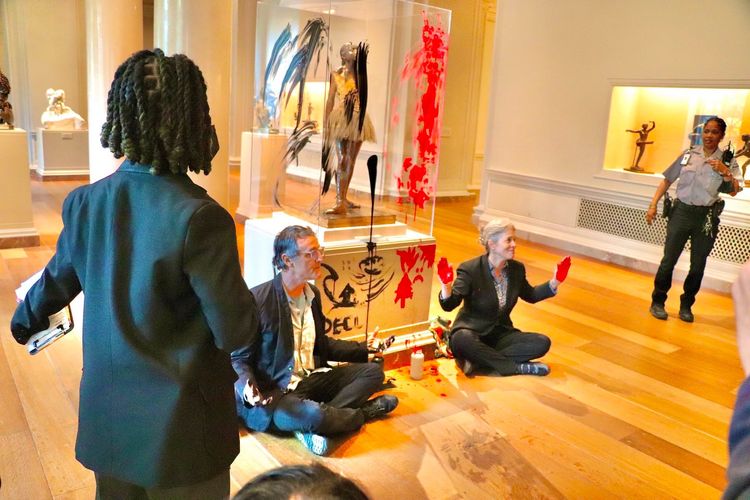



Only paid subscribers can comment.
Please subscribe or sign in to join the conversation.